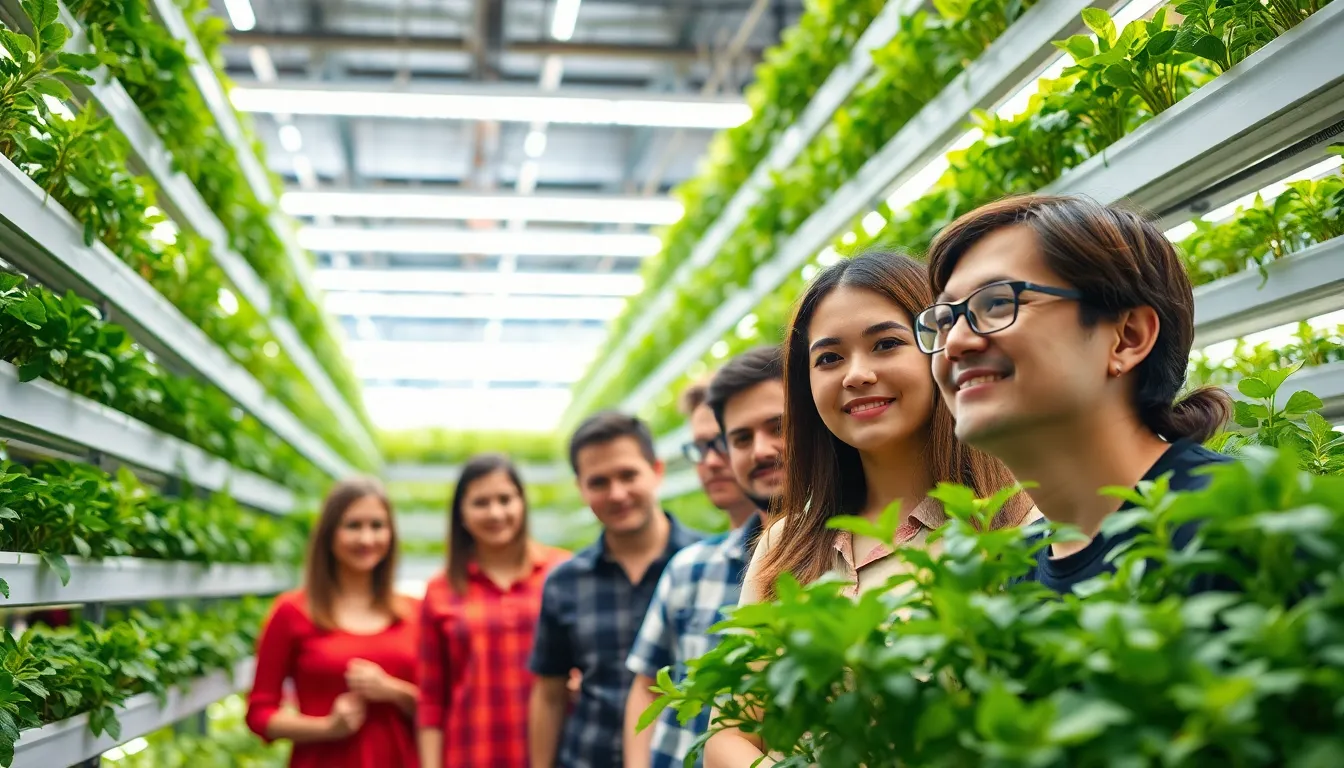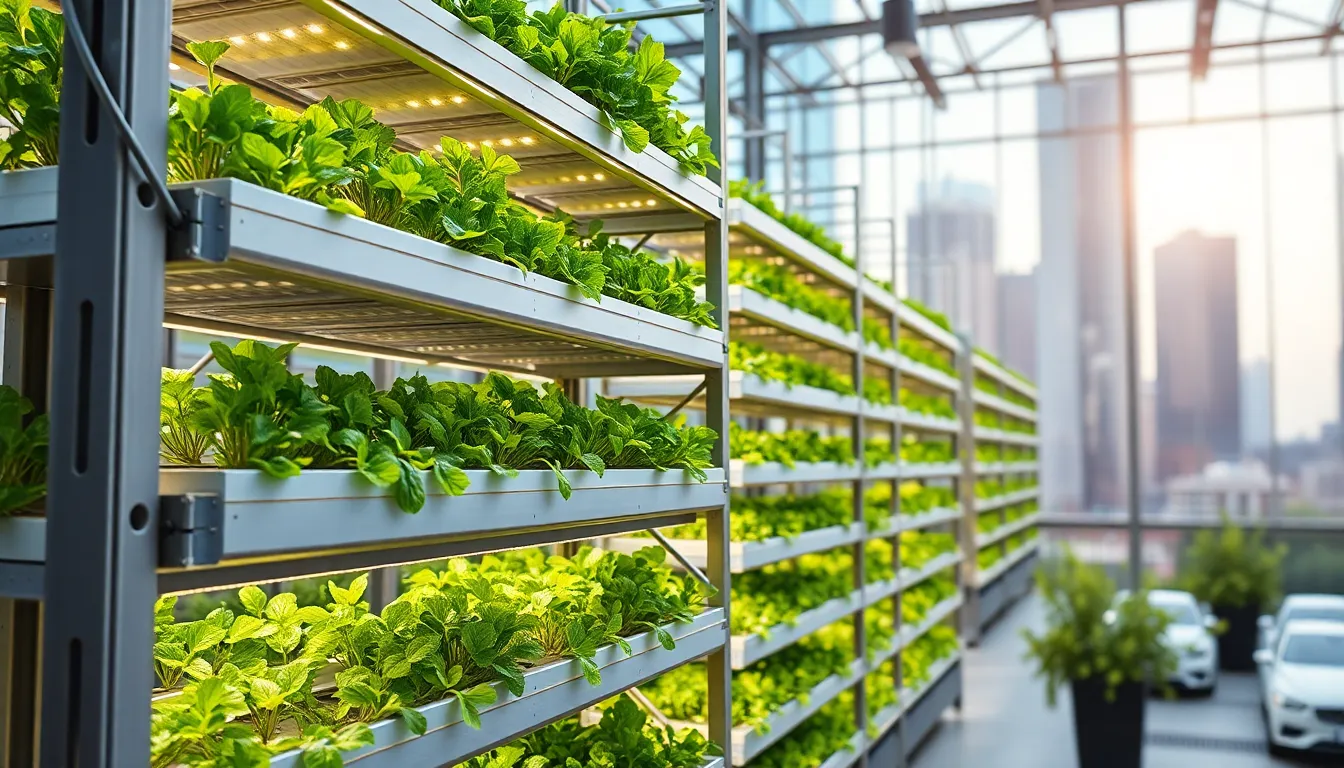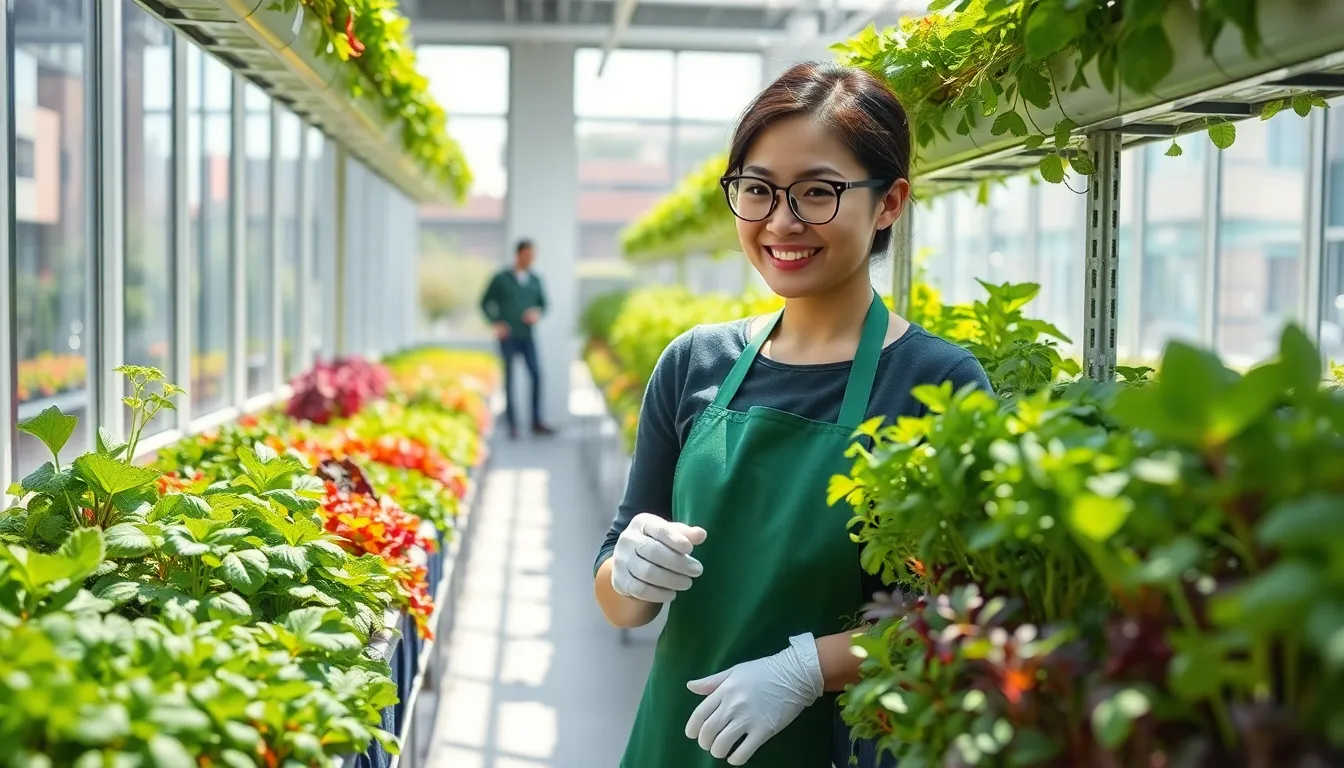In a world where food production often feels like a race against time and resources, sustainable food technology emerges as the superhero we didn’t know we needed. Imagine a future where your dinner plate is filled with delicious, eco-friendly meals that save the planet one bite at a time. Sounds dreamy, right? Well, it’s not just a fantasy—it’s happening right now.
From lab-grown burgers to vertical farms, sustainable food tech is revolutionizing how we think about what we eat. It’s like giving Mother Nature a high-five while enjoying a guilt-free feast. As the demand for greener solutions grows, this innovative approach not only addresses environmental concerns but also tickles the taste buds. Join the journey into this exciting realm of culinary innovation, where sustainability meets scrumptiousness, and discover how technology is reshaping our food future for the better.
Table of Contents
ToggleOverview of Sustainable Food Technology
Sustainable food technology encompasses innovative approaches that tackle food production challenges while minimizing environmental impact. It includes various methods such as lab-grown meats and vertical farming, which transform agriculture by utilizing less land and resources.
Lab-grown burgers represent a notable advancement, using cellular agriculture to produce meat without raising livestock. This method significantly reduces greenhouse gas emissions and water usage compared to traditional meat production. Additionally, vertical farms offer year-round crop production in urban areas, reducing transportation emissions and providing fresh produce to local communities.
Innovative packaging solutions also contribute to sustainability. Biodegradable and compostable materials replace conventional plastics, reducing waste and promoting environmental health. Food waste reduction technologies, like composting and anaerobic digestion, further enhance sustainability by converting leftovers into useful byproducts such as energy or fertilizer.
Precision farming technologies play a vital role in optimizing resource use. Drones and sensors monitor crop health and soil conditions, allowing farmers to apply water, nutrients, and pesticides more efficiently. This targeted approach lowers costs and enhances crop yields.
Emerging trends in plant-based alternatives reflect changing consumer preferences toward sustainable diets. These products often require fewer resources for production and align with growing concerns about animal welfare and health.
Incorporating blockchain technology improves transparency in food supply chains. Enhanced traceability ensures food safety and allows consumers to make informed choices about their purchases. Overall, sustainable food technology presents innovative solutions that address global food security while promoting environmental stewardship.
Key Innovations in Sustainable Food Technology


Innovative solutions in sustainable food technology address pressing challenges in food production while minimizing environmental impact. Key developments include vertical farming, lab-grown meat, and aquaponics.
Vertical Farming
Vertical farming utilizes stacked layers to cultivate crops indoors, maximizing space in urban areas. This method decreases the need for land and minimizes transportation emissions by providing fresh produce locally. Controlled environments enhance crop yields and reduce reliance on pesticides. Lighting systems also optimize growth cycles, ensuring plants receive the optimal amount of light. The year-round production capability of vertical farms contributes significantly to food security in dense urban populations.
Lab-Grown Meat
Lab-grown meat, also known as cultured meat, emerges as a revolutionary option for reducing the ecological footprint of meat consumption. Created through cellular agriculture, this approach uses significantly less land and water than traditional meat production. Production often emits lower greenhouse gases, contributing to climate change mitigation. As technology advances, lab-grown meat becomes more affordable, making it accessible to a broader audience. Consumer acceptance of this innovation is increasing as many seek alternatives to conventional meats.
Aquaponics
Aquaponics combines aquaculture and hydroponics, creating a symbiotic environment for fish and plants. In this system, fish waste provides nutrients for plants, while plants filter and clean the water for fish. Water conservation is a key benefit, as this method uses up to 90% less water than traditional farming techniques. Aquaponics systems also promote biodiversity and enable local food production. With the growing interest in sustainable agriculture, aquaponics represents a viable method for enhancing food security while conserving resources.
Benefits of Sustainable Food Technology
Sustainable food technology provides numerous advantages, addressing various dimensions of food production and consumption. The focus on environmental sustainability, health improvement, and economic growth enhances overall food system resilience.
Environmental Impact
Sustainable food technology significantly reduces greenhouse gas emissions through methods like lab-grown meat and vertical farming. Lab-grown meats, for instance, cut emissions by an estimated 80% compared to conventional meat production. Vertical farms contribute by decreasing the need for arable land, transforming urban landscapes. Efficient water usage in practices like aquaponics leads to a 90% reduction in water consumption compared to traditional farming. Innovative biodegradable packaging materials further lower waste, replacing harmful plastics and promoting eco-friendly practices. Overall, these technologies directly support global efforts to combat climate change.
Health Benefits
Healthier food options emerge from sustainable food technology, emphasizing nutrition and wellness. Lab-grown meat often contains fewer harmful components compared to conventional meats, providing safer dietary choices. Additionally, increased availability of fresh produce through vertical farming supports a balanced diet rich in vitamins and minerals. These practices, emphasizing local sourcing, foster better nutrition while minimizing food miles. Innovations in food processing further enhance food preservation while maintaining nutritional value. Emphasizing plant-based alternatives strengthens public health by encouraging diets lower in saturated fats.
Economic Opportunities
Economic growth flourishes through the adoption of sustainable food technology. Job creation arises from new sectors, such as vertical farming and lab-grown meat production, expanding employment opportunities. The local economy benefits from reduced food transportation costs, reinforcing community-based food systems. Farmers utilizing precision agriculture technologies see higher yields and reduced resource expenses, leading to increased profitability. Innovative packaging solutions attract investment, stimulating further advancements in sustainable practices. Overall, sustainable food technology fosters resilience and adaptability in an ever-changing market.
Challenges and Limitations
Sustainable food technology faces several challenges that can hinder its widespread adoption. These hurdles encompass technological barriers and public perception.
Technological Barriers
Technological barriers pose significant obstacles for sustainable food technology. High development costs often restrict investments in research and innovation. Many emerging technologies lack scalability, limiting their application in larger food systems. Accessibility issues remain, particularly in developing regions where resources are scarce. Additionally, regulatory approval processes for lab-grown products can delay market entry, stalling advancements. Continuous improvement of technology is essential, but frequent changes in consumer expectations make it difficult to keep up.
Public Perception
Public perception greatly influences the acceptance of sustainable food technology. Skepticism around lab-grown meats persists, as some consumers view them as unnatural. Misunderstandings about the environmental benefits can cause hesitation in adopting these innovations. Many individuals still prefer conventional farming methods, fearing impacts on food quality and safety. Education plays a critical role in shaping attitudes. Informative campaigns could help highlight the advantages of sustainable practices, leading to a more informed public eager to embrace change.

